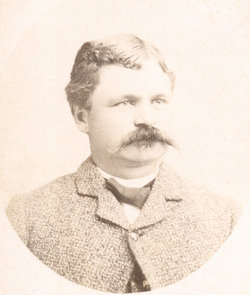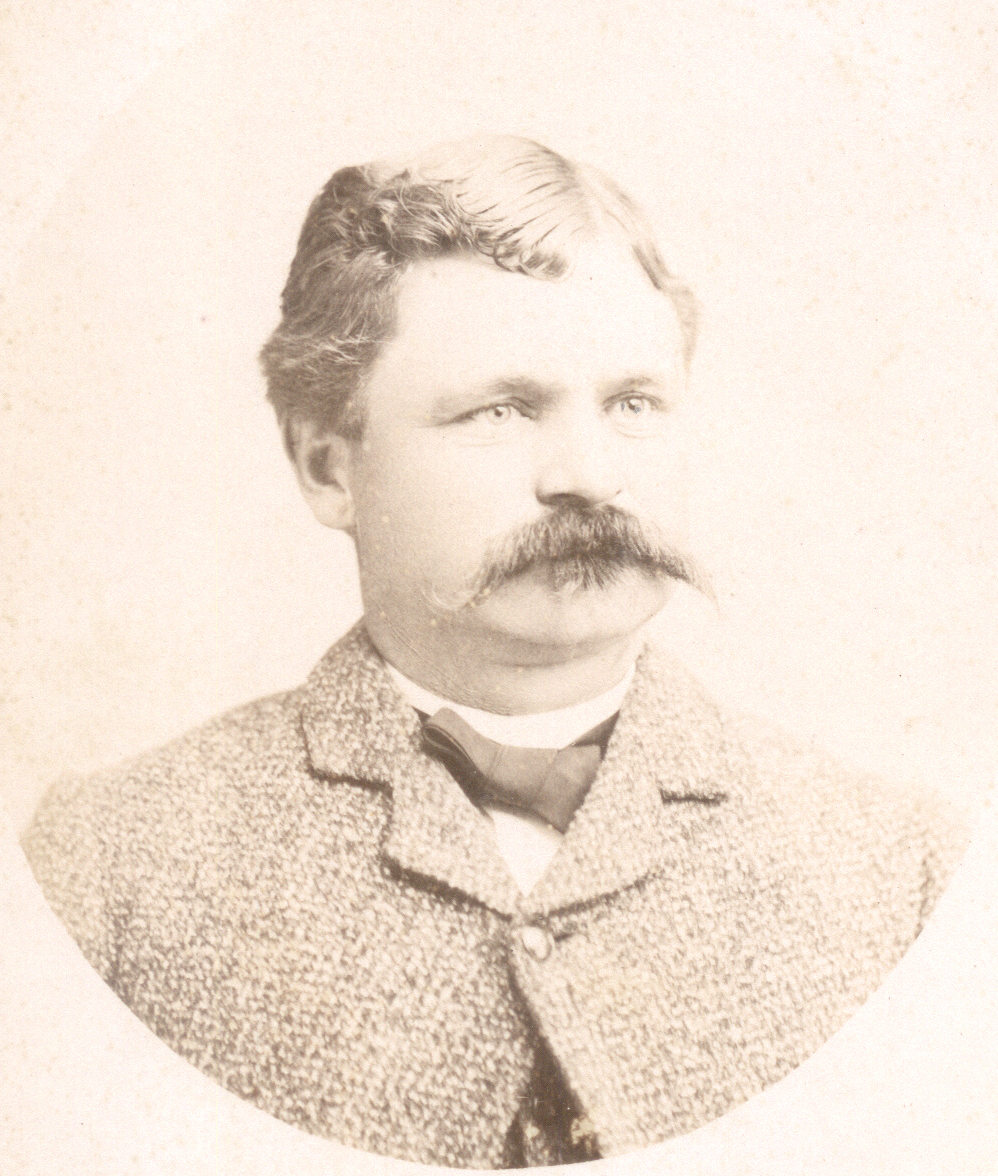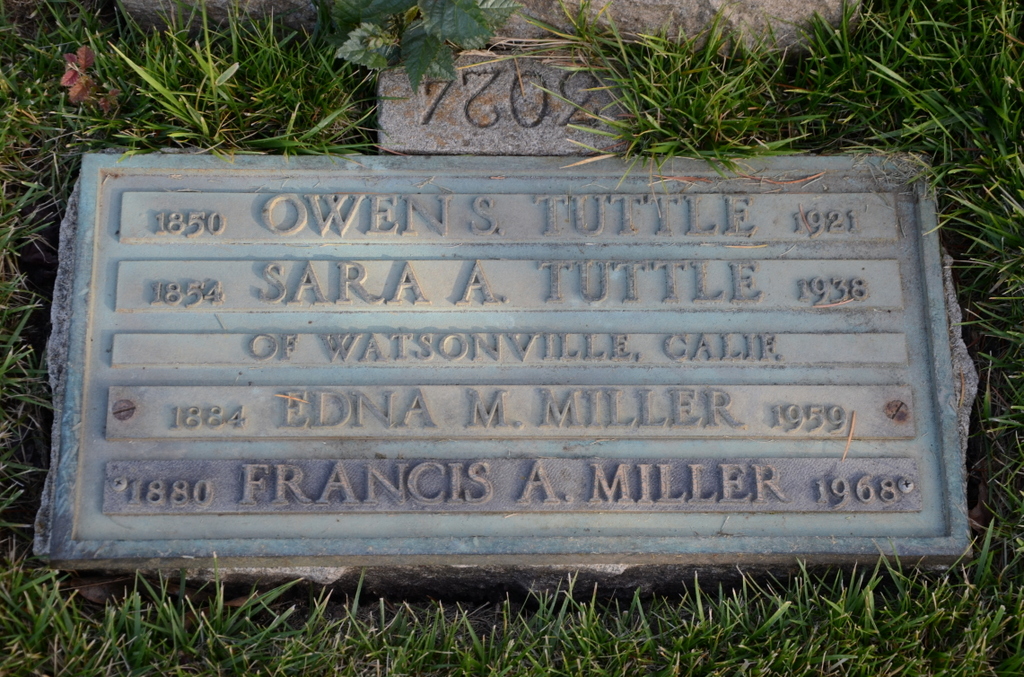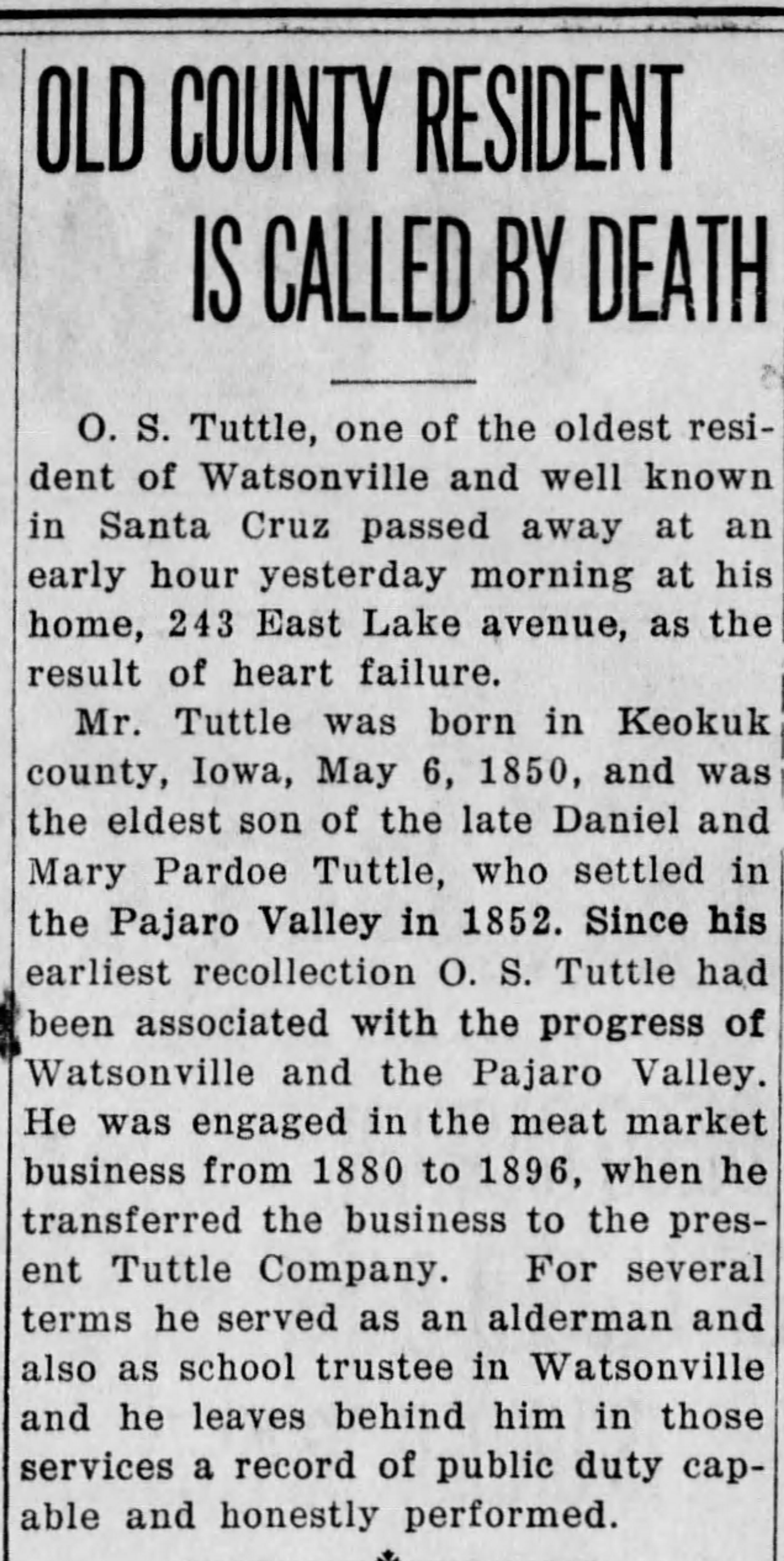The varied interests which have been under the supervision of Mr. Tuttle have given him a position of prominence among the business men of Watsonville and the stock-raisers of the Pajaro valley. He was born in Keokuk county,Iowa, May 6, 1850, being a son of Daniel and Mary E. (Pardoe) Tuttle. His grandfather, Hiram Tuttle, a native of Washington county, Pa., removed to Richland county, Ohio, in 1821, and in 1838 established his home still further toward the west, going to a farm in Iowa. Daniel Tuttle was reared to agricultural activities and in 1852 accompanied a party to California, settling in Shasta county, where he conducted a tavern. However, agriculture was his chosen occupation, and in the fall of 1852 he came to Santa Cruz county in search of a favorable opening for farming. With others he took a squatter's claim on the Amesta ranch, and this place he stocked with cattle, the land affording fine grazing in those days. For a time he had control of five hundred acres, which afforded him abundant pasturage for his herds. There being no saw mill near, he could not secure lumber with which to build a house, so put up a rude hut of split lumber. In addition to raising stock he engaged in general farming and also set out a peach orchard.
For a few years all went well, but finally the squatters were dispersed by law and their claims were taken from them. He made a test case of his property, but was obliged to submit, losing all of his improvements. Forced to start anew, he bought a ranch of ninety acres, for which he paid $33.33 an acre. In those days that was considered a very high price, but since then some of the same property has been sold for from $100 to $1,000 an acre. About 1864 he built a house near the river, but this he later moved to First street, nearly one-half mile away. When he first settled in the Pajaro valley, he and Reuben Pardoe, with the assistance of a negro, engaged in freighting from here to Stockton, using for that purpose three eight-mule teams. Considerable freighting was also done to the coast. Mr. Tuttle was one of the first to own and operate a threshing machine in the valley. These were of the old style, with five sweeps and three teams on each.
During the drought of 1864 Mr. Tuttle had his large herd of cattle at Lonetree, in San Benito county, but could not find sufficient pasturage for them there, and so sold all at $6 a head (including the calves). The following year such of the herd as had escaped the drought were gathered together by a Cherokee, Joe Mateo, who put his brand on them and sold them for $40 per head. In those days there were no railroads, hence cattle could not be shipped out of the country in times of drought. During the early part of i860 Mr. Tuttle planted a twenty-acre tract in apples, but these proved to be of common stock and unmarketable, so the trees were later dug up. Besides his other enterprises, he engaged extensively in raising potatoes and grain. In company with S. Yoacham, he opened a meat market in Watsonville, in which he was afterward succeeded by his son, Owen S. Though averse to public office, he consented to serve as town trustee and road commissioner, and acted as a delegate to the state convention at the time of the adoption of the new constitution. At the time of his death,
May 31, 1894, he was seventy years of age. His wife, who was born in 1826, died in 1896. Their children were named as follows: Dr. Hiram P., deceased; Owen S.: Mary E., who married J. S. Menasco; Emma, deceased: Frank G. and Reuben S.
Since his earliest recollections Owen S. Tuttle has been associated with Santa Cruz county. About 1880 he succeeded his father in the market and two years later bought out S. Yoacham, continuing to carry on the business until 1896, when he leased the market to his son, George A., and brother, R. S. Since then he has given his attention mainly to farming and dealing in stock. He owns the old homestead of sixty acres adjoining the city limits. Fraternally he is connected with the Foresters, Workmen, lodge of Odd Fellows and the Rebekahs. His interest in educational matters has been shown by his service as school trustee. For four years he also held the office of city trustee.
February 7. 1872. Mr. Tuttle married Edna Andrews, who was born in Stephenson county, Ill., February 10, 1857. and died August 10, 1877. Her father, George Andrews, was a California pioneer from New York state. At her death she left two sons: George A., who married Benella Wilcox, and is now in charge of the market at Watsonville; and D. Roy, who married Maude Skinner and died in 1895. The second marriage of Owen S. Tuttle united him with Sarah, daughter of K. F. Redman, who is represented elsewhere in this volume. The children born of their union are Allyer R., Edna May and Ruth Clair.
History of the State of California and biographical record of Coast Counties, California. An historical story of the state's marvelous growth from its earliest settlement to the present time PROF. J. M. GUINN, A. M., THE CHAPMAN PUBLISHING CO. CHICAGO 1903
Son of Daniel and Mary (Pardo) Tuttle
Husband of (1) Edna Andrews (2) Sarah Redman
Father of George, Daniel, Allyn, Edna and Ruth
The varied interests which have been under the supervision of Mr. Tuttle have given him a position of prominence among the business men of Watsonville and the stock-raisers of the Pajaro valley. He was born in Keokuk county,Iowa, May 6, 1850, being a son of Daniel and Mary E. (Pardoe) Tuttle. His grandfather, Hiram Tuttle, a native of Washington county, Pa., removed to Richland county, Ohio, in 1821, and in 1838 established his home still further toward the west, going to a farm in Iowa. Daniel Tuttle was reared to agricultural activities and in 1852 accompanied a party to California, settling in Shasta county, where he conducted a tavern. However, agriculture was his chosen occupation, and in the fall of 1852 he came to Santa Cruz county in search of a favorable opening for farming. With others he took a squatter's claim on the Amesta ranch, and this place he stocked with cattle, the land affording fine grazing in those days. For a time he had control of five hundred acres, which afforded him abundant pasturage for his herds. There being no saw mill near, he could not secure lumber with which to build a house, so put up a rude hut of split lumber. In addition to raising stock he engaged in general farming and also set out a peach orchard.
For a few years all went well, but finally the squatters were dispersed by law and their claims were taken from them. He made a test case of his property, but was obliged to submit, losing all of his improvements. Forced to start anew, he bought a ranch of ninety acres, for which he paid $33.33 an acre. In those days that was considered a very high price, but since then some of the same property has been sold for from $100 to $1,000 an acre. About 1864 he built a house near the river, but this he later moved to First street, nearly one-half mile away. When he first settled in the Pajaro valley, he and Reuben Pardoe, with the assistance of a negro, engaged in freighting from here to Stockton, using for that purpose three eight-mule teams. Considerable freighting was also done to the coast. Mr. Tuttle was one of the first to own and operate a threshing machine in the valley. These were of the old style, with five sweeps and three teams on each.
During the drought of 1864 Mr. Tuttle had his large herd of cattle at Lonetree, in San Benito county, but could not find sufficient pasturage for them there, and so sold all at $6 a head (including the calves). The following year such of the herd as had escaped the drought were gathered together by a Cherokee, Joe Mateo, who put his brand on them and sold them for $40 per head. In those days there were no railroads, hence cattle could not be shipped out of the country in times of drought. During the early part of i860 Mr. Tuttle planted a twenty-acre tract in apples, but these proved to be of common stock and unmarketable, so the trees were later dug up. Besides his other enterprises, he engaged extensively in raising potatoes and grain. In company with S. Yoacham, he opened a meat market in Watsonville, in which he was afterward succeeded by his son, Owen S. Though averse to public office, he consented to serve as town trustee and road commissioner, and acted as a delegate to the state convention at the time of the adoption of the new constitution. At the time of his death,
May 31, 1894, he was seventy years of age. His wife, who was born in 1826, died in 1896. Their children were named as follows: Dr. Hiram P., deceased; Owen S.: Mary E., who married J. S. Menasco; Emma, deceased: Frank G. and Reuben S.
Since his earliest recollections Owen S. Tuttle has been associated with Santa Cruz county. About 1880 he succeeded his father in the market and two years later bought out S. Yoacham, continuing to carry on the business until 1896, when he leased the market to his son, George A., and brother, R. S. Since then he has given his attention mainly to farming and dealing in stock. He owns the old homestead of sixty acres adjoining the city limits. Fraternally he is connected with the Foresters, Workmen, lodge of Odd Fellows and the Rebekahs. His interest in educational matters has been shown by his service as school trustee. For four years he also held the office of city trustee.
February 7. 1872. Mr. Tuttle married Edna Andrews, who was born in Stephenson county, Ill., February 10, 1857. and died August 10, 1877. Her father, George Andrews, was a California pioneer from New York state. At her death she left two sons: George A., who married Benella Wilcox, and is now in charge of the market at Watsonville; and D. Roy, who married Maude Skinner and died in 1895. The second marriage of Owen S. Tuttle united him with Sarah, daughter of K. F. Redman, who is represented elsewhere in this volume. The children born of their union are Allyer R., Edna May and Ruth Clair.
History of the State of California and biographical record of Coast Counties, California. An historical story of the state's marvelous growth from its earliest settlement to the present time PROF. J. M. GUINN, A. M., THE CHAPMAN PUBLISHING CO. CHICAGO 1903
Son of Daniel and Mary (Pardo) Tuttle
Husband of (1) Edna Andrews (2) Sarah Redman
Father of George, Daniel, Allyn, Edna and Ruth
Family Members
Sponsored by Ancestry
Advertisement
Records on Ancestry
Advertisement
























